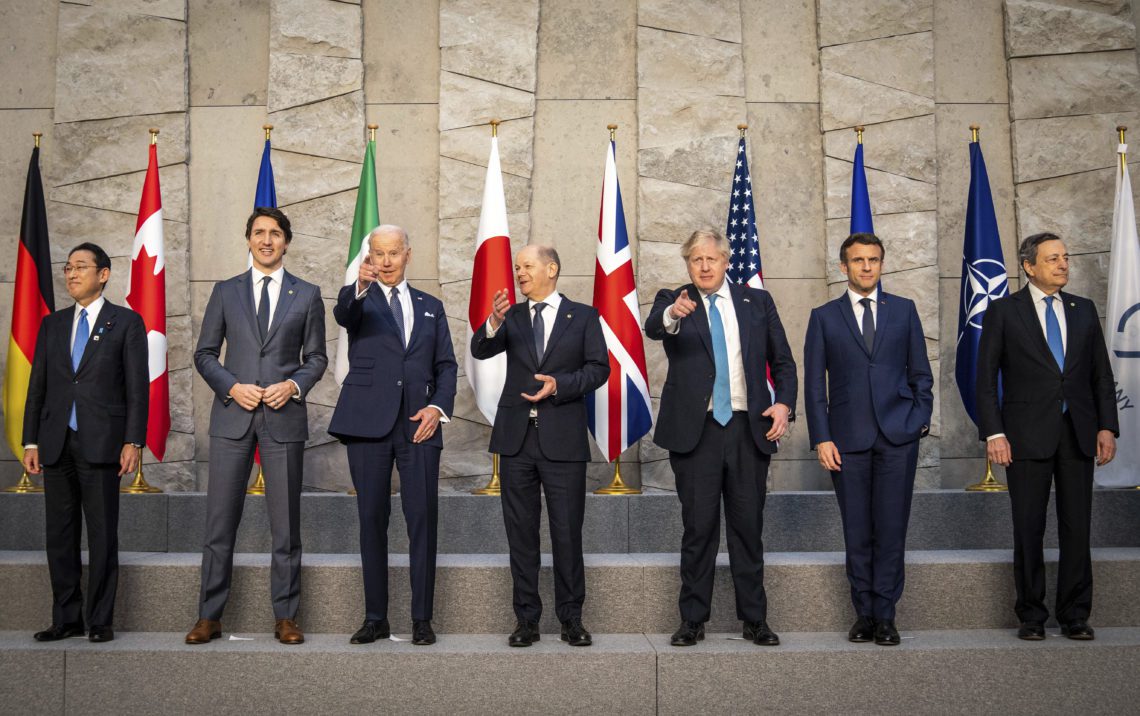This article originally appeared in The Hub.
By Robert Murray and Tom Keating, November 24, 2022
The image of the very public confrontation between Canadian Prime Minister Justin Trudeau and Chinese President Xi Jinping will, for many, be the main takeaway from the recent gathering of the G20 in Indonesia. Lost in the conversations of this incident was the importance of the forum itself, a forum that enabled the bilateral meeting between the two leaders. Canada’s ability to command the attention of major powers for any purpose is severely limited, yet meetings of groups such as the G20 provide vitally important opportunities for such interactions.
In her October 11, 2022 speech to the Brookings Institution, Canada’s Deputy Prime Minister and Finance Minister Chrystia Freeland presented the closest thing to a Canadian foreign policy doctrine that we have seen in quite some time.
Freeland’s vision for dealing with an increasingly complex global landscape and evolving world order is to work primarily with the world’s other democracies, while admitting that there are non-democratic states in the world that also need to be engaged. Further, Freeland argued that Canada’s approach to the global economic order more closely mirrors that of the political vision she presented in the speech, with democracies collaborating and aligning to promote economic interests for a greater good in the face of growing unrest.
Beyond the flaws in Freeland’s speech, which can be summarized mainly by her view that the world has suddenly shifted with Russia’s invasion of Ukraine and that the effort to establish a post-Cold War liberal order was overarchingly a force for “good”, Freeland was very light on details about how Canada should engage with the world, and how this engagement will best pursue its interests and uphold its values as presented in her speech. In this regard, the most glaring omission from Freeland’s vision was the lack of serious attention given to multilateralism as the cornerstone of Canadian foreign policy throughout its history and as the approach most likely to allow Canada to navigate the evolving world order.
Canada’s foreign policy has commonly used multilateralism as a means of charting an independent path for its foreign policy while protecting its interests and security. As a middle power, Canada does not have nearly the military power required for it to be a major power. But its geostrategic position and its considerable political, economic, and diplomatic capabilities mean it has been able to pursue its interests or project its values in ways minor powers could not. Canada has used multilateralism through formal institutions and informal arrangements to achieve its goals and to navigate the complexities of its relationships with the United States and other world powers. Some of these multilateral commitments are overtly security based, such as NATO, while others are focused on political or economic goals.
Multilateralism and many international organizations have wrongly become associated with the liberal internationalist agenda promoted by Canada and other Western governments in the post-Cold War era, and critics often indict the challenges or failures of multilateral bodies as somehow responsible for the shortcomings of the liberal agenda globally. In reality, multilateralism is a conscious and strategic choice states make to protect and pursue their interests. The actions of multilateral organizations are typically strongly grounded in realism and state self-interest as opposed to implementing some kind of liberal order free of consequence or risk.
The ongoing evolution of the world order will require Canada, and every other state, to reassess their interests and their approaches to how they will pursue those interests in a pluralist and potentially hostile order. The persistence and proliferation of non-Western and non-democratic powers should finally put to rest the strategies and tactics of the post-Cold War era. It should not, however, lead us to abandon the multilateral connections that Canada has relied on in the past.
The shrinking democratic world makes opportunities to engage with other states more critical. Groups of like-minded democracies might be easier to deal with but they will not, on their own, solve problems related to climate change, public health, or international trade. For these and others, multilateral settings are crucial, and Canada’s active participation in them is vital if we are to advance our interests and protect our security. A much more significant takeaway from the G20 was that despite particular bilateral differences, the 19 government leaders present at this year’s G20 agreed on a communique outlining their shared interests on many issues ranging from Russian aggression in Ukraine to public health. This is a necessary starting point for any effective action.
Multilateralism will inevitably become more important, not less, for Canada in the coming years as the foundation upon which our foreign policy is built. Being intentional and strategic about how to use multilateralism for our security and for our benefit is essential, and the sooner we see serious consideration given to the role multilateralism has played and will play for Canada, the better we will be in the new world order.
Robert W. Murray is a Senior Fellow at the Macdonald-Laurier Institute and Tom Keating is a Professor Emeritus at the University of Alberta.






